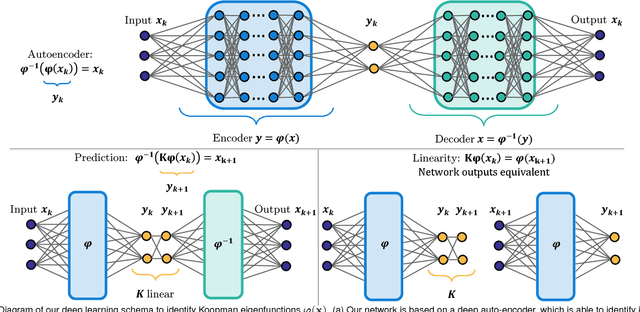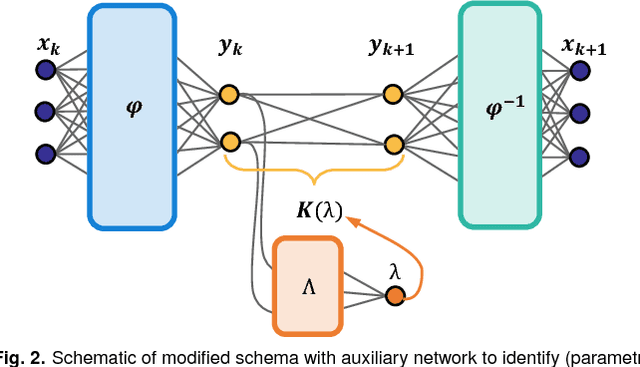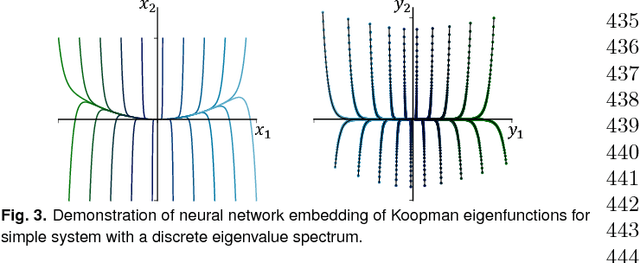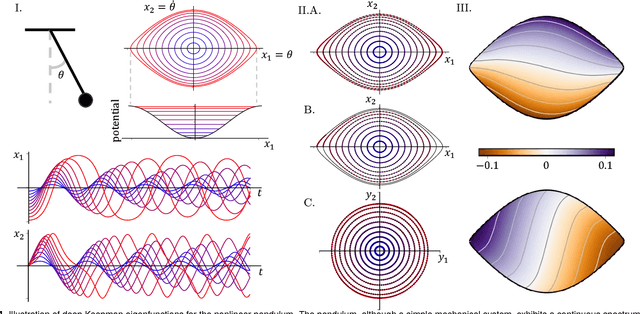Deep learning for universal linear embeddings of nonlinear dynamics
Paper and Code
Apr 13, 2018



Identifying coordinate transformations that make strongly nonlinear dynamics approximately linear is a central challenge in modern dynamical systems. These transformations have the potential to enable prediction, estimation, and control of nonlinear systems using standard linear theory. The Koopman operator has emerged as a leading data-driven embedding, as eigenfunctions of this operator provide intrinsic coordinates that globally linearize the dynamics. However, identifying and representing these eigenfunctions has proven to be mathematically and computationally challenging. This work leverages the power of deep learning to discover representations of Koopman eigenfunctions from trajectory data of dynamical systems. Our network is parsimonious and interpretable by construction, embedding the dynamics on a low-dimensional manifold that is of the intrinsic rank of the dynamics and parameterized by the Koopman eigenfunctions. In particular, we identify nonlinear coordinates on which the dynamics are globally linear using a modified auto-encoder. We also generalize Koopman representations to include a ubiquitous class of systems that exhibit continuous spectra, ranging from the simple pendulum to nonlinear optics and broadband turbulence. Our framework parametrizes the continuous frequency using an auxiliary network, enabling a compact and efficient embedding at the intrinsic rank, while connecting our models to half a century of asymptotics. In this way, we benefit from the power and generality of deep learning, while retaining the physical interpretability of Koopman embeddings.
 Add to Chrome
Add to Chrome Add to Firefox
Add to Firefox Add to Edge
Add to Edge